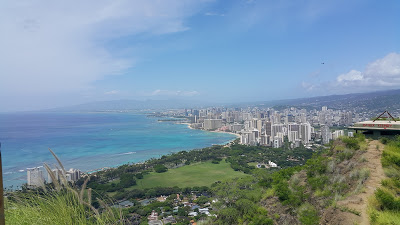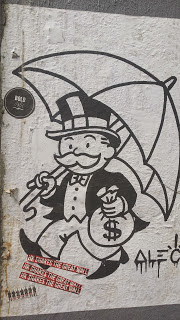Normally I find it quite boring. Right now, it’s entertaining.
It’s possible to lodge your entire tax return online, have an estimate calculated and it is usually fairly accurate. If you’ve made a mistake, the friendly people at the Inland Revenue Department, let you know that you could actually claim more and they give you the adjusted amount.
Tax is paid in two instalments, one in January which usually covers the previous tax year and then another instalment a few months later which is a provisional tax calculated at about 75% of what they expect you would owe for the following year. There is no Pay As You Go salary tax. Salary tax is part of this tax return.
As I’m leaving the country, my employer will hold my final salary payment until I clear all outstanding tax with the IRD. This is the same for everyone, I’m not being singled out. My employer produces a form called the IR56G which is a slight variation to the form they give all of us at the end of each financial year, with our total income, bonuses, shares, rent etc included. I’m meant to then take this to the IRD, have my final tax calculated, pay it and be given a Letter of Release to give back to my employer for them to be able to pay my last salary.
All good in theory.
So here’s what’s happened so far.
I took my IR56G to the first floor of the IRD in Wan Chai. I walked through the doors of this large administrative government building and saw a sign directing me to take a ticket. There was one button to press if I needed some sort of disability assistance and another to press for everything else. I chose that one.
I sat down in front of roughly 30 counter spaces to wait for my number to be called. There was one customer being served, another came in and about four people spread out over the 30 counters. The woman at the counter directly in front of the bank of chairs I happened to be sitting on began calling out my number, she looked me in my eyes as I walked forward and sat down while holding out my ticket to her. She hadn’t stopped calling my number until I sat down.
As is standard for HK, she asked me for my HKID (we all have these cards and they make life so much easier, in general) and then asked why I was there. I told her “to clear my taxes as I’m leaving the country”. She punched a few things into a computer and then wrote on a piece of pre-printed paper my HKID number and ticked a box to say I was cleaning my taxes. She told me to go to the Ground Floor and then catch the escalator to Level 27.
I did as I was told.
Level 27 is an area that has two small rooms sectioned off to the left. They look like the investigation rooms of any police station seen on TV. You can see directly into them from the waiting area.
I took my ticket to the guy behind the counter who was fairly casually dressed in a t-shirt and pants. He looked at my ticket and asked for my IR56G. I gave it to him. He then gave me a green form. This is the paper version of the online form we all fill in each year though it is much more cumbersome and not so user-friendly. He told me to take my IR56G and copy what it says onto the green form. I looked at him and said “really?”. He said “yes” and smiled. He knew it was a bit ridiculous.
I sat at a long table and completed the task. Taking the form back to the man at the counter, I had one question as the form isn’t great. He answered and then told me I’d completed another section incorrectly. I told him that I’d transposed the form the way he told me to. He said “this part is done differently, you take 10% of this figure and put it in here and then total”. I said “fine” and initialed the change.
He then told me to sit down and wait and a person would be with me shortly.
I sat.
I waited.
A person was with me. Not shortly but not that long either.
She took me into the police investigation room and said “so are you leaving Hong Kong?”. I said “yes”. She said “is your husband going too?”. I said “excuse me”. She said “oops, sorry, I didn’t see that part of the form”. Lucky I’m not hypersensitive.
She then showed me this year’s final figure and how much I would now owe. I said “so do I pay here or do I have to go somewhere else?”. I’ve been in HK for a while now so I’m familiar with the way tasks are split to help promote a high rate of employment. She said “you have to wait”. I said “here or in the waiting area?”. She said “at home”. I said “oh”.
As it turns out, it takes two business days for them to first issue me with a Letter of Demand. I can either have this sent to my home, which would take even longer, or go back to the IRD to collect it. I’ve chosen to go back.
I asked her what the next steps would be. “You come to Level 27 on Tuesday morning to collect the Letter of Demand. Then you go to the Post Office on the Ground Floor to pay either EPS (that’s the electronic payment system / EFTPOS or whatever you want to call it) or cash. No other method. Then bring the receipt back to Level 27 and we will give you a Letter of Release to take to your company.”
I laughed.
She didn’t think it was funny.
I tried to explain.
I laughed again.
No point in explaining.
I have been told by various people that I will need to get use to the bureaucracy in Japan. What gets me through all this sort of thing in HK is that it really is quite funny and there’s no point in fighting it as it’s not something that the people I interact with can actually change. It’s just different to what I’m use to. To me, it looks and feels inefficient. To those involved and those that set the process, they see it differently.
It’s actually quite interesting to see it play out and when questioned about efficiency, it’s not often the issue is recognised. This is for various reasons including partly structural, partly educational, partly cultural / hierarchical, partly accountability, partly it’s not the priority and partly not enough people have seen alternate ways of doing things. There’s probably a billion other reasons too that I haven’t considered which is the other reason why I just go with it.
I don’t think Japan will be like Hong Kong. I think the bureaucracy part of it will be a good example of a standard phrase heard throughout Asia. Living here for a while now, the phrase makes more sense to me.
It’s a favourite phrase. It’s printed on t-shirts, glasses, hats and postcards –
Same, same. But different.
* Thanks to The Whitlams for the title to this post.


